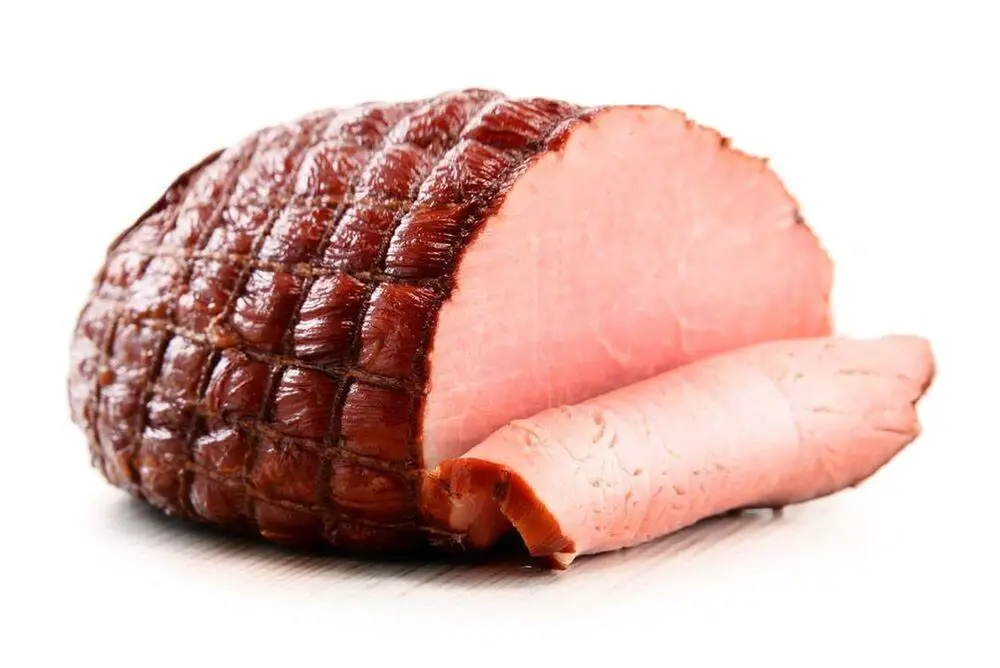Can Dogs Eat Ham? The Definitive Guide to Feeding Your Furry Friend
Introduction
Welcome to your comprehensive guide on whether dogs can eat ham! As a pet owner, we understand the importance of providing your furry friend with a healthy and balanced diet. However, navigating the world of human foods can be tricky, especially when it comes to our beloved canines. In this article, we'll delve into the specifics of ham consumption for dogs, exploring its potential benefits and risks. Get ready to satisfy your curiosity and equip yourself with the knowledge to make informed decisions about your dog's diet.

Source americanbullydaily.com
Ham: A Delicacy or a Dietary Dilemma?
Ham, a cured pork product, is a popular delicacy enjoyed by many humans. But when it comes to our canine companions, the question arises: can dogs eat ham? The answer is not as straightforward as one might think. While ham can offer certain nutritional benefits, it also poses potential risks that need to be considered.
The Pros: Nutritional Value of Ham
In moderation, ham can provide some nutritional value for dogs. It's a good source of:
- Protein: Essential for muscle growth and maintenance
- Thiamin: A B vitamin crucial for energy metabolism
- Zinc: Supports immune function and skin health
The Cons: Potential Risks of Ham for Dogs
However, it's important to be aware of the potential risks associated with feeding ham to dogs:
- High Fat Content: Ham is relatively high in fat, which can lead to weight gain and pancreatitis if consumed excessively.
- High Sodium Content: Processed hams often contain high levels of sodium, which can be harmful to dogs, especially those with heart or kidney disease.
- Preservatives and Spices: Commercial hams may be seasoned with preservatives and spices that can be toxic to dogs, such as nitrates and garlic powder.
Cooked vs. Raw Ham: Which Is Better?
When considering giving your dog ham, it's essential to choose the right type. Raw ham should be avoided at all costs, as it can contain harmful bacteria such as Salmonella and Trichinella. Cooked ham, on the other hand, is a safer option but still requires caution.
How Much Ham Can Dogs Eat?
If you decide to give your dog ham, it should be fed in small amounts and as an occasional treat. A few bites of cooked, plain ham without any seasonings or glaze are generally considered safe.
Other Salted Meats Dogs Can Have
In addition to ham, there are other salted meats that dogs can have in moderation, including:
- Bacon: Similar to ham, bacon should be cooked and fed in small amounts due to its high fat content.
- Salami: A type of dry sausage, salami can be given as an occasional treat but should be avoided for dogs with sensitive stomachs.
- Kielbasa: A Polish sausage, kielbasa is another option for dogs in moderation but should be cooked before serving.
Comparison Table: Ham vs. Competitors
To help you make an informed decision, here's a table comparing the nutritional content of ham to other salted meats:
| Meat | Calories | Fat (g) | Sodium (mg) |
|---|---|---|---|
| Ham | 178 | 11 | 920 |
| Bacon | 145 | 11 | 1380 |
| Salami | 140 | 11 | 1060 |
| Kielbasa | 120 | 12 | 560 |
Conclusion
While ham can be offered to dogs as an occasional treat, it's crucial to feed it in moderation and choose cooked, plain ham without any seasonings or glaze. Always consult with your veterinarian before introducing any new foods to your dog's diet. For more information on canine nutrition, check out our other articles on feeding dogs and keeping them healthy.
FAQ about Can Dogs Have Ham
Can dogs have ham?
Yes, dogs can have ham in moderation.
How much ham can I give my dog?
A small amount of ham, no more than 1 ounce per 10 pounds of body weight, is safe for dogs.
What is the best way to give ham to my dog?
Remove the fat and bones from the ham and cut it into small pieces. You can give it to your dog as a treat or add it to their food.
What are the benefits of ham for dogs?
Ham is a good source of protein and fat. It also contains vitamins and minerals, such as thiamin, niacin, and zinc.
What are the risks of giving ham to dogs?
Ham is high in sodium and fat, so it should be given to dogs in moderation. Too much ham can lead to digestive upset, weight gain, and other health problems.
Can dogs have raw ham?
No, dogs should not have raw ham. Raw ham can contain bacteria that can make dogs sick.
Can dogs have honey glazed ham?
No, dogs should not have honey glazed ham. Honey is toxic to dogs and can cause vomiting, diarrhea, and other health problems.
Can dogs have ham bone?
No, dogs should not have ham bone. Ham bone can splinter and cause serious injuries to dogs.
Can dogs have ham hock?
Yes, dogs can have ham hock in moderation. Ham hock is the joint between the tibia and fibula bones in the hind leg of a pig. It is a good source of protein and collagen.
Can dogs have ham steak?
Yes, dogs can have ham steak in moderation. Ham steak is a thin slice of ham that is usually grilled or fried.
Dogs can enjoy scallops as an occasional treat, but it's important to be aware of the potential risks. Can Dogs Have Scallops